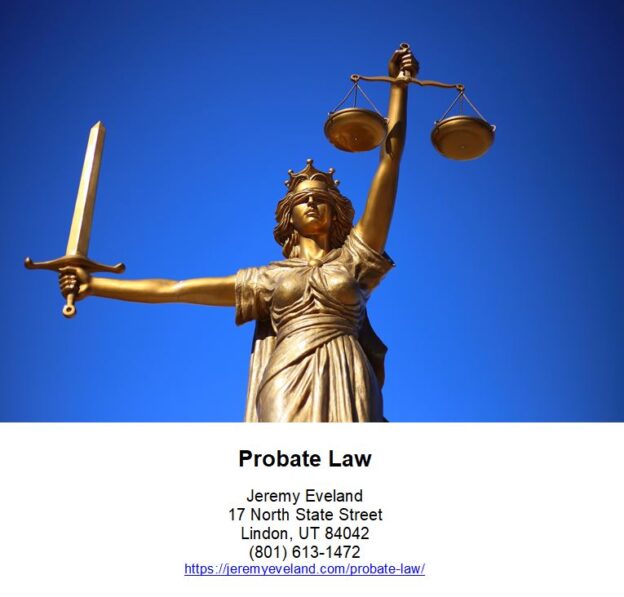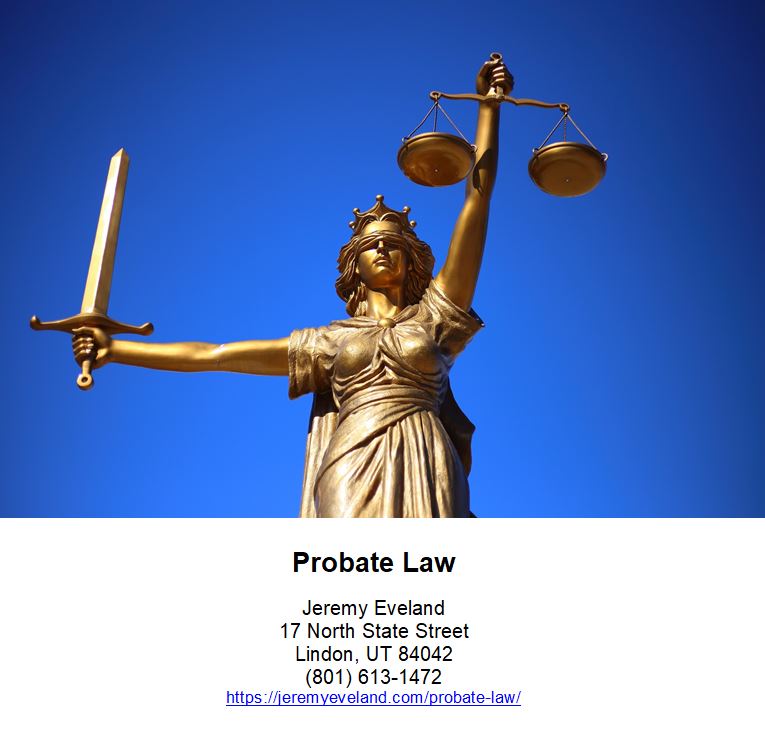-
Attorney at Law
- Introduction
- How to Protect Your Assets with a Trust Lawyer’s Advice
- The Benefits of Working with a Trust Lawyer
- Understanding the Different Types of Trusts
- How to Choose the Right Trust Lawyer for Your Needs
- What You Need to Know About Trust Law
- Why You Should Hire A Lawyer to Draft and Administer a Trust
- Q&A
“Trust Lawyer: Your Trusted Legal Partner”
Introduction
Trust Lawyer is a specialized area of law that deals with the creation, management, and termination of trusts. Trusts are legal arrangements that allow a person or organization to manage and protect assets for the benefit of another person or organization. Trust Lawyers are responsible for ensuring that the trust is properly established and managed in accordance with the wishes of the trustor. They also provide advice on the tax implications of trusts, as well as the legal requirements for setting up and managing trusts. Trust Lawyers are also responsible for ensuring that the trust is properly administered and that the beneficiaries receive their due benefits.
How to Protect Your Assets with a Trust Lawyer’s Advice
Protecting your assets is an important part of financial planning. A trust lawyer can help you create a trust that will protect your assets from creditors, lawsuits, and other risks. Here are some tips from trust lawyers on how to protect your assets with a trust.
1. Understand the Different Types of Trusts. There are many different types of trusts, each with its own advantages and disadvantages. A trust lawyer can help you understand the different types of trusts and determine which one is best for your situation.
2. Choose the Right Trustee. The trustee is the person who will manage the trust and make decisions about how the assets are used. It is important to choose a trustee who is trustworthy and knowledgeable about the trust and its assets.
3. Draft a Comprehensive Trust Document. A trust document should be comprehensive and clearly outline the terms of the trust. It should include information about the assets, the beneficiaries, and the trustee’s responsibilities.
4. Monitor the Trust. Once the trust is established, it is important to monitor it regularly to ensure that it is being managed properly. A trust lawyer can help you review the trust documents and make sure that the trust is being managed in accordance with the terms of the trust.
5. Seek Professional Advice. A trust lawyer can provide valuable advice on how to protect your assets with a trust. They can help you understand the different types of trusts and determine which one is best for your situation. They can also help you draft a comprehensive trust document and monitor the trust to ensure that it is being managed properly.
By following these tips from trust lawyers, you can ensure that your assets are protected with a trust. A trust lawyer can provide valuable advice and guidance to help you protect your assets and ensure that they are managed properly.
The Benefits of Working with a Trust Lawyer
Working with a trust lawyer can provide a number of benefits for those who are looking to create a trust or manage an existing trust. A trust lawyer is a legal professional who specializes in trust law and can provide invaluable assistance in the creation and management of trusts. Here are some of the benefits of working with a trust lawyer.
Expertise: A trust lawyer has the expertise and experience to help you create a trust that meets your needs and complies with the law. Trust lawyers understand the complexities of trust law and can provide advice on the best way to structure your trust. They can also help you understand the tax implications of creating a trust and how to maximize the benefits of the trust.
Protection: A trust lawyer can help protect your assets and ensure that your wishes are carried out. Trust lawyers can help you create a trust that will protect your assets from creditors and ensure that your beneficiaries receive the assets you intended them to receive. They can also help you create a trust that will protect your assets from being taken by the government in the event of your death.
Peace of Mind: Working with a trust lawyer can provide peace of mind. Trust lawyers can help you create a trust that will ensure that your wishes are carried out and that your assets are protected. They can also provide advice on how to manage the trust and ensure that it is properly administered.
These are just a few of the benefits of working with a trust lawyer. Trust lawyers can provide invaluable assistance in the creation and management of trusts and can help ensure that your wishes are carried out and that your assets are protected. If you are considering creating a trust or managing an existing trust, it is important to work with a trust lawyer to ensure that your wishes are carried out and that your assets are protected.
Understanding the Different Types of Trusts
Trusts are a powerful tool for estate planning, allowing individuals to protect their assets and provide for their loved ones. There are many different types of trusts, each with its own unique advantages and disadvantages. Understanding the different types of trusts can help you make an informed decision about which type of trust is best for your needs.
Revocable Trusts: A revocable trust is a trust that can be modified or revoked by the grantor at any time. This type of trust is often used to manage assets during the grantor’s lifetime, and can be used to avoid probate. The grantor retains control over the trust assets and can change the terms of the trust at any time.
Irrevocable Trusts: An irrevocable trust is a trust that cannot be modified or revoked by the grantor. This type of trust is often used to protect assets from creditors and to minimize estate taxes. The grantor gives up control over the trust assets and cannot change the terms of the trust.
Living Trusts: A living trust is a trust that is created during the grantor’s lifetime. This type of trust is often used to manage assets during the grantor’s lifetime and to avoid probate. The grantor retains control over the trust assets and can change the terms of the trust at any time.
Testamentary Trusts: A testamentary trust is a trust that is created upon the death of the grantor. This type of trust is often used to manage assets after the grantor’s death and to provide for beneficiaries. The grantor does not retain control over the trust assets and cannot change the terms of the trust.
Charitable Trusts: A charitable trust is a trust that is created to benefit a charitable organization. This type of trust is often used to provide financial support to a charitable organization and to reduce estate taxes. The grantor does not retain control over the trust assets and cannot change the terms of the trust.
Special Needs Trusts: A special needs trust is a trust that is created to provide for the needs of a disabled beneficiary. This type of trust is often used to provide financial support to a disabled beneficiary and to protect assets from being used to pay for medical expenses. The grantor does not retain control over the trust assets and cannot change the terms of the trust.
By understanding the different types of trusts, you can make an informed decision about which type of trust is best for your needs. Each type of trust has its own unique advantages and disadvantages, so it is important to consider all of your options before making a decision.
How to Choose the Right Trust Lawyer for Your Needs
Choosing the right trust lawyer for your needs is an important decision. It is important to take the time to research and find a lawyer who is experienced and knowledgeable in trust law. Here are some tips to help you choose the right trust lawyer for your needs.
1. Research: Before you begin your search for a trust lawyer, it is important to do your research. Look for lawyers who specialize in trust law and have experience in the area. Check out their websites and read reviews from past clients.
2. Ask Questions: Once you have narrowed down your list of potential lawyers, it is important to ask questions. Ask about their experience in trust law, their fees, and any other questions you may have. This will help you get a better understanding of the lawyer and their services.
3. Meet in Person: Once you have narrowed down your list of potential lawyers, it is important to meet with them in person. This will give you the opportunity to get to know the lawyer and ask any additional questions you may have.
4. Get References: Ask the lawyer for references from past clients. This will give you an idea of how the lawyer works and how satisfied their clients are with their services.
5. Trust Your Instincts: Ultimately, it is important to trust your instincts when choosing a trust lawyer. If you feel comfortable with the lawyer and confident in their abilities, then they are likely the right choice for you.
By following these tips, you can be sure to find the right trust lawyer for your needs. Take your time and do your research to ensure you make the best decision for your situation.
What You Need to Know About Trust Law
Trust law is an important area of law that governs the relationship between a trustee and a beneficiary. It is important to understand the basics of trust law in order to ensure that your trust is properly established and managed.
First, it is important to understand the different types of trusts. A trust can be either revocable or irrevocable. A revocable trust allows the grantor to change or revoke the trust at any time. An irrevocable trust, on the other hand, cannot be changed or revoked once it is established.
Second, it is important to understand the duties of a trustee. A trustee is responsible for managing the trust assets and ensuring that the trust is administered according to the terms of the trust document. The trustee must also ensure that the trust is managed in the best interests of the beneficiaries.
Third, it is important to understand the rights of the beneficiaries. Beneficiaries have the right to receive information about the trust and to receive distributions from the trust. Beneficiaries also have the right to challenge the trustee’s decisions if they believe that the trustee is not acting in their best interests.
Finally, it is important to understand the tax implications of trusts. Trusts are subject to both federal and state taxes. It is important to consult with a qualified tax professional to ensure that the trust is properly structured and managed in order to minimize the tax burden.
Trust law is a complex area of law that requires a thorough understanding of the various rules and regulations. It is important to consult with a qualified attorney to ensure that your trust is properly established and managed.
Why You Should Hire A Lawyer to Draft and Administer a Trust
Creating a trust is a complex process that requires a thorough understanding of the law. A trust is a legal arrangement that allows a person to transfer assets to another person or entity for the benefit of a third party. It is important to ensure that the trust is properly drafted and administered in order to protect the interests of all parties involved.
For this reason, it is highly recommended that you hire a lawyer to draft and administer a trust. An experienced lawyer can provide invaluable guidance and advice throughout the process, ensuring that the trust is properly structured and that all legal requirements are met.
A lawyer can help you determine the best type of trust for your needs, as well as advise you on the most appropriate terms and conditions. They can also help you select the right trustee and beneficiaries, and ensure that all necessary documents are properly executed.
In addition, a lawyer can provide assistance with the administration of the trust. This includes ensuring that the trust is properly funded, that all assets are properly managed, and that all taxes and other obligations are met. They can also provide advice on how to handle disputes or other issues that may arise.
Finally, a lawyer can provide valuable advice on how to protect the trust from potential legal challenges. This includes ensuring that the trust is properly structured and that all necessary documents are in place.
Overall, hiring a lawyer to draft and administer a trust is an important step in protecting the interests of all parties involved. An experienced lawyer can provide invaluable guidance and advice throughout the process, ensuring that the trust is properly structured and that all legal requirements are met.
Q&A
1. What is a Trust Lawyer?
A trust lawyer is a lawyer who specializes in the legal aspects of trusts, which are legal arrangements that allow a person to manage and control assets for the benefit of another person or entity. Trust lawyers help clients create, manage, and administer trusts, as well as advise clients on the legal implications of trust-related matters.
2. What types of services do Trust Lawyers provide?
Trust lawyers provide a variety of services related to trusts, including drafting trust documents, advising clients on trust-related matters, and helping clients manage and administer trusts. They also provide legal advice on tax and estate planning, asset protection, and other trust-related matters.
3. What qualifications do Trust Lawyers need?
Trust lawyers must have a law degree and be licensed to practice law in their state. In addition, many trust lawyers have specialized training in trust law, estate planning, and tax law.
4. How much do Trust Lawyers charge?
Trust lawyers typically charge an hourly rate for their services. The exact rate will vary depending on the lawyer’s experience and the complexity of the matter.
5. What should I look for when hiring a Trust Lawyer?
When hiring a trust lawyer, it is important to find someone who is experienced in trust law and who is familiar with the laws in your state. It is also important to find a lawyer who is willing to take the time to understand your needs and provide personalized advice.
6. What are the benefits of hiring a Trust Lawyer?
Hiring a trust lawyer can help ensure that your trust is properly created and managed, and that your assets are protected. A trust lawyer can also provide advice on tax and estate planning, asset protection, and other trust-related matters.
Trust Lawyer Consultation
When you need help from a Trust Lawyer call Jeremy D. Eveland, MBA, JD (801) 613-1472 for a consultation.
Jeremy Eveland
17 North State Street
Lindon UT 84042
(801) 613-1472
Related Posts
Estate Planning Lawyer West Valley City Utah
Business Contract Lawyer Spanish Fork
Corporate Attorney Riverton Utah
Advantages of Hiring a Utah Personal Injury Lawyer
Estate Planning Lawyer Provo Utah






















